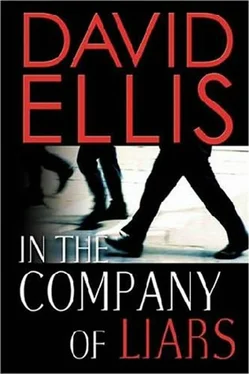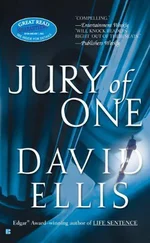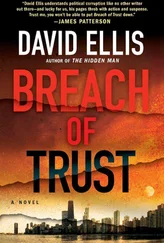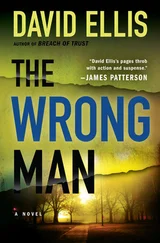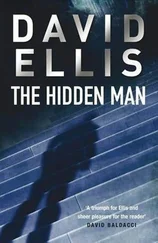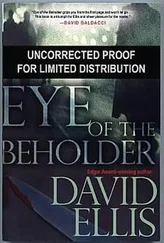Jane McCoy turns down the car radio as Harrick reviews his notes from the trial today. She likes to think of herself as hip to today’s music, but she is having difficulty enjoying the violent lyrics and the thrash guitars filling the airwaves these days. That, she figures, is exactly how her parents felt. She is getting old. Forty years old this July and she’s a dinosaur. She’s got hair clips older than these idiots on the radio, spouting about “bitches” and “forties.”
“Okay,” says Harrick. “She said she got to Allison’s at about eight-thirty that night. She was studying and doing laundry.”
“And what time did she say Allison came home?”
“Two in the morning, give or take.” Harrick flips through his notes. “She said mom threw up when she walked in. She was a mess. She had dirt all over her.”
“Okay.”
“Oh, and she said that her mom admitted having an affair with Sam. That’s pretty much it, more or less.”
McCoy laughs. “Try ‘less.’ What did Allison’s lawyer do with her?”
“Nothing. Didn’t ask a single question.”
“Interesting. Did she get tripped up at all?”
“No.”
“She’s lucky,” says McCoy.
“Oh, I don’t know about ‘lucky.’ That girl knew exactly what to say.”
“Woman,” McCoy corrects.
“What?”
“Woman. Jessica Pagone’s a woman, not a girl.”
“Oh, well pardon me.” Harrick chews on his ever-present toothpick. “That ‘young woman’ knew exactly what to say and how to say it. She may have left the puzzle half-finished, but that’s not the same thing as perjury. I didn’t hear a single thing in there that could be proven false.”
McCoy switches to talk radio, which is buzzing about the Pagone murder trial.
“Yeah, well, the apple doesn’t fall far from the tree,” McCoy says.
ONE DAY EARLIER
TUESDAY, APRIL 27
The university library is the perfect cover for a graduate student preparing for final exams. Ram Haroon gets very little done in the way of studying. Few do at this place. Most people are surfing the internet in the computer rooms or sitting on couches and talking over steaming cups of coffee.
Haroon heads over to the book stacks on the top floor of the library. West side, third from the end. He pretends to mull over a series of books about northern Africa. He pulls three books down and places two of them on the next shelf below, opens the other one and begins to peruse it.
A moment later, through the space created by removing the books, a note passes through from the other side. Haroon’s eyes move about; no one is watching. No one would bother. He takes the note and reads it.
Things are looking bad for her. Trial starts tomorrow and their case is in chaos. Prosecution’s case is strong and she has nothing to point away from her. She knows she will be convicted.
She doesn’t know about us. There’s no way. I would know if she did.
Haroon rolls his head on his neck casually, then removes a pen from his pocket and scribbles on the sheet of paper, passes it through.
I still don’t like it. She might know but not want to tell. She might wait to testify at trial to spring it.
The note comes back with new words written beneath his message.
She won’t testify. Too much at stake from her end. She would rather die. Her words, a direct quote. She’s on edge.
She would rather die.Haroon smiles. He takes the paper and places it in the book he has open. He waits two minutes or so before writing his response and sending it through:
A person looking at the death penalty might find it more appealing to end things on her own terms. I think it is time for Mrs. Allison Pagone to commit suicide. I will need your help on timing, of course. Will she continue to speak freely?
A long moment passes. Probably his partner is just being careful. In all likelihood not a single person is paying them any attention, standing in the corner stacks as they are. Still, the notes cannot pass too closely together, too many times. Finally, the response arrives:
Of course. If you can’t trust your ex-husband, who can you trust?
“Exactly,” Ram says, as he crumbles the note in his hand and picks up one of the books he has pulled. He will read it for a few minutes, then wander out of the library.
ONE DAY EARLIER
MONDAY, APRIL 26
Allison thinks of her daughter as she sits on a swing in her backyard cradling a glass of wine. Mat Pagone is pacing around the yard, undoubtedly remembering the barbecues on that porch and the games with Jessica in the sandbox. Thinking about things she cannot fathom.
She wonders if there will ever be a time when she can look at this man and not feel cheated. Will she ever get past this? Will she ever look at Mateo Pagone simply as the father of her child, and not as the asshole who took her for granted and cheated on her and, probably, poisoned their daughter’s mind against her? Will she ever be able to look back at the decades with him without the wordswasted years springing to mind?
No, Mateo Pagone is not a bad man. He is old-school, a man who thinks that some of the marital vows do not apply. But not a bad person. Probably doesn’t think he has done anything wrong. And they drifted apart. Became less alike the longer they were together. Actually, the better way to say it is that Mat stayed the same, Allison grew up. Developed. From the moment she first indicated she wanted to take night classes toward a college degree, Mat was against it. Wanted to keep Allison the way she had been, dependent, supportive, compliant, and she didn’t mean that in a bad way. It was just all Mat knew, what he had seen from his parents, and their parents. The wife stays home, cooks, cleans, raises the child. Mat works and provides for them. She could sense the objection to the classes right away. Not an outright “No,” but active discouragement.Why not join the PTA? he had suggested. A bridge club. Be a Girl Scout leader. But she did it, anyway, felt that she needed to do it for herself, took college courses part-time, fit them around her daughter and husband, and tingled with anticipation for her future.
Something glorious is going to happen.
She got a college degree in theater, performed in community plays and had no inclination, whatsoever, of making it a career, had no illusions about becoming a star of the stage. In truth, she acted only for herself, not the audience, for the freedom it brought her. But soon she ached for more, and found another way to perform theater. She attended law school part-time, mostly at night. Got a job as a public defender. Wrote a novel and made more money than he did. Their marriage moved farther downhill with each step. At the end Mat wanted to preserve things-she will never know what part of that was appearances and what part was a love for Allison-but even he had seen that the end had come once Jessica moved out to go to college.
The way I am now, I’m no wife for you.
“Jessie’s thinking about studying abroad next year,” Mat tells her. His hands are stuffed in his pockets. He kicks at a stray weed in the lawn. “Spain. Sevilla, probably.”
“Okay.” She is disarmed at her response, however appropriate it may be under the circumstances. She has little to say about her daughter’s life now, little right to inquire. Allison had always supported the idea of studying abroad. Jess had been noncommittal. It isn’t difficult to discern what change has prompted her daughter’s desire for new surroundings. Anywhere, at this point, is better than here.
“I told her you and I would discuss it,” he adds, looking at her. The wind kicks a few strands of his thick hair up. He is wearing a light yellow jacket that is probably insufficient for a cold spring day.
Читать дальше
